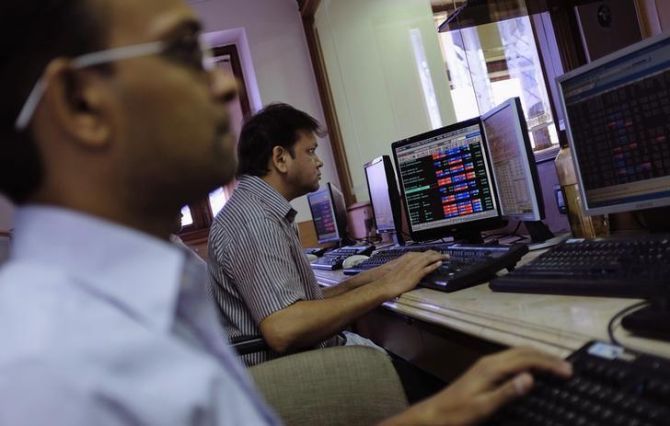This flight of capital began in early August due to risk-aversion created first by rising geopolitical tensions due to North Korean aggression and second by the US Fed’s decision to shrink its balance sheet

Foreign portfolio investors (FPIs) have pulled out over $3.2 billion from the domestic stock market in the September quarter (data till September 28).
Other emerging markets (EMs), including South Korea ($2.8 billion), Indonesia and Taiwan (at $2.1 billion each) and South Africa ($1.4 billion), too, saw pull-back by foreign investors, lower pace, according to the Bloomberg data as on September 29.
This flight of capital began in early August due to risk-aversion created first by rising geopolitical tensions due to North Korean aggression and second by the US Federal Reserve’s decision to shrink its balance sheet, which caused the US dollar to appreciate against most global currencies.
As mentioned, the sell-off was more pronounced in India due to fears of slowdown in the domestic economy due to disruptions created by demonetisation and implementation of the Goods and Services Tax (GST).
Talks of fiscal stimulus to shore up economic growth stoked fears of widening of the fiscal deficit, which led to a fall in the rupee and hardening of bond yields.
Already wary FPIs got further spooked, leading to the acceleration of outflows over the past fortnight.
“Over the last few months, FPIs have been trimming their exposure to India. Expensive valuations alongside weak economic fundamentals have led to FPI outflows and correction in equities,” says Saurabh Mukherjea, chief executive officer, Ambit Capital.
Market pundits believe FPI inflows into EMs, including India, could remain soft over the next 6-12 months. Within the EM basket, India could cede its share of foreign flows, they add.
The reason for bearish FPI outlook is hawkish stance from the Fed. Starting October, the US central bank will reduce its holding by $10 billion a month, and raise the amount gradually (to as much as $50 billion) in the months ahead.
This marks the end of massive stimulus programme the Fed had embarked upon following the 2008 financial crisis.
While the monetary stance still continues to be easy as interest rates hike by the Fed will be gradual, it however, will reduce the supply of cheap capital that was chasing risky assets world over, say experts.
Also, the tailwind EM equities witnessed in form of weakening of the dollar so far this year could turn into a headwind, say market pundits.
Outflows out of India could be more (and if there are inflows they could be less) compared to regional peers due to two key factors.
The reason being foreign funds are pruning their overweight stance on India in favour of other EMs, which are demonstrating better earnings and economic growth.
At the peak, foreign funds were 800 basis points (bps) overweight on India relative to its weightage on the indices such as MSCI EM or MSCI Asia (excluding Japan).
This has now come off to about 500 bps and is expected to reduce further, say experts.
Also, the sluggish economic growth and prolonged delay in corporate earnings revival is testing the patience of many investors.
Add to that, the premium valuations of India leaves little room for disappointment.
The Nifty trades at one-year forward price-to-earnings multiple of 20 times compared to long-term average of 16 times. The MSCI Asia Pacific Index trades at relatively attractive valuations of 14.3 times.
There is another important factor at play in favour of other EMs.
“Unlike other EMs like South Korea, India is not an export-driven economy but a consumption story.
Other EMs benefit the most from rising commodity prices but for India it is a disadvantage.
The commodity cycle seems to be reviving globally with prices of oil and metals gradually going up. Hence, it would be definitely an advantage for other EMs compared to India,” said Andrew Holland, chief executive officer, Avendus Capital.
Photograph: Danish Siddiqui/Reuters











